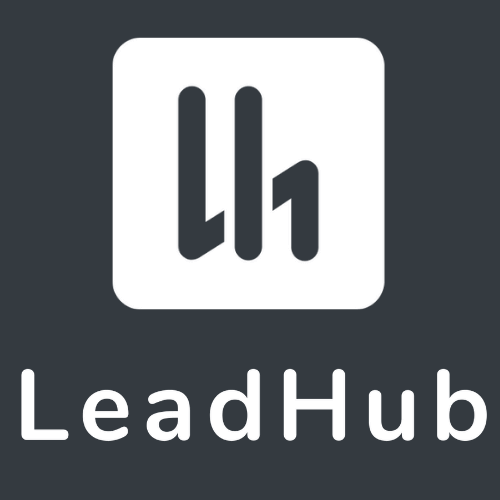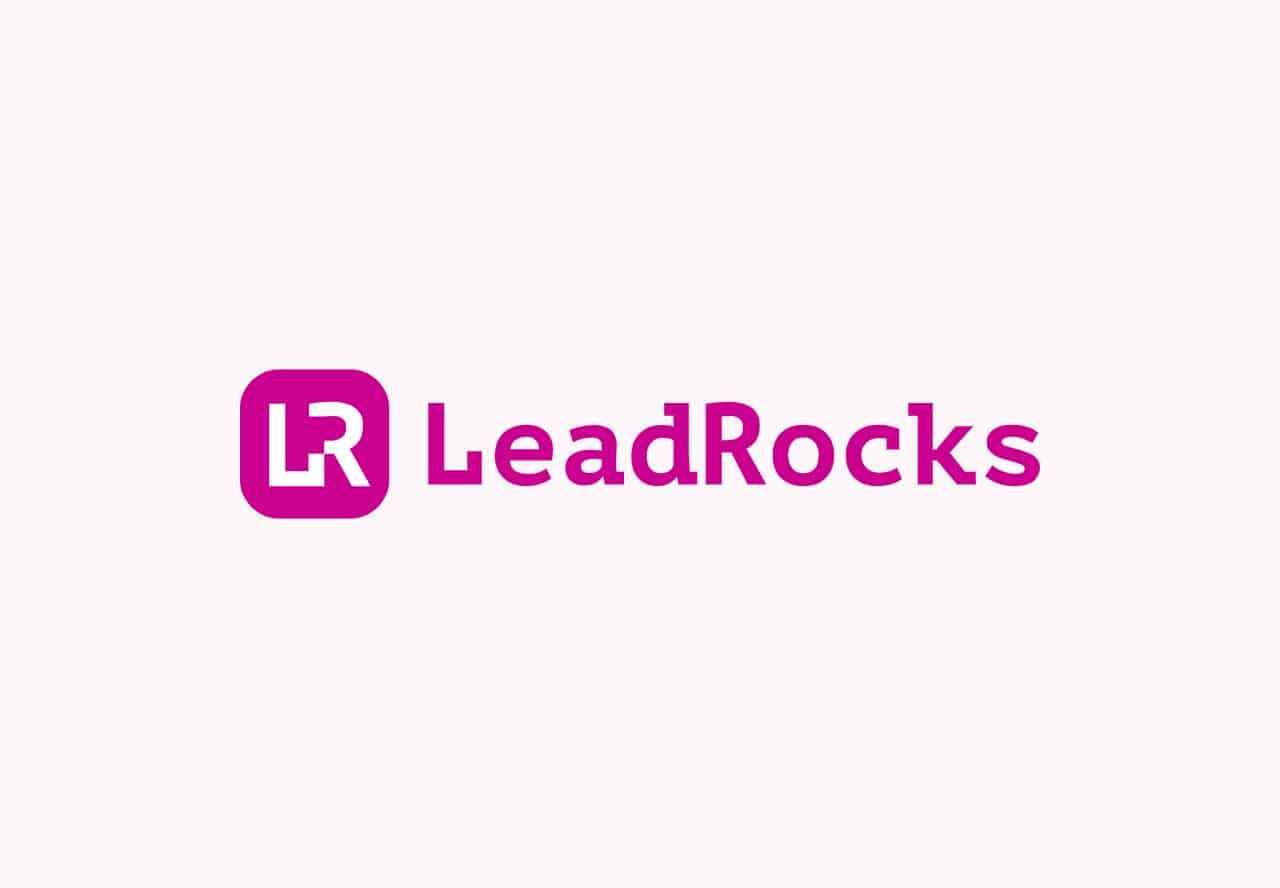Description

LeadHub

MeraCRM
Comprehensive Overview: LeadHub vs MeraCRM
LeadHub and MeraCRM: Comprehensive Overview
a) Primary Functions and Target Markets
LeadHub:
-
Primary Functions:
- LeadHub is primarily a lead management and CRM tool designed to streamline and optimize the process of lead acquisition and conversion.
- Key features include lead tracking, lead scoring, pipeline management, email integration, reporting and analytics, and automated workflows.
- It often integrates with other marketing tools for a cohesive approach to customer relationship management.
-
Target Markets:
- Small to medium-sized businesses (SMBs) and enterprises looking for efficient lead management solutions.
- Industries like real estate, finance, and B2B services are common users, where lead generation and conversion are critical.
MeraCRM:
-
Primary Functions:
- MeraCRM is a customer relationship management software focused on improving client relationships, sales, and customer service.
- Features include contact management, task management, sales tracking, customer support, and extensive reporting capabilities.
- The platform is designed to be user-friendly and customizable according to business needs.
-
Target Markets:
- MeraCRM primarily targets small to medium-sized enterprises (SMEs) across various sectors including retail, manufacturing, and service-based industries.
- It is particularly suitable for businesses needing a solution for comprehensive CRM without extensive training or technical expertise.
b) Market Share and User Base
- Market Share and User Base:
- Both LeadHub and MeraCRM are niché players in the broader CRM landscape, which is dominated by large-scale providers like Salesforce, HubSpot, and Zoho CRM.
- They cater to specific market segments, with MeraCRM having a slightly broader appeal due to its general CRM approach as opposed to LeadHub’s lead-focused approach.
- Precise market share metrics for LeadHub and MeraCRM are often proprietary, but they are understood to hold small yet loyal user bases within their targeted niches.
c) Key Differentiating Factors
LeadHub:
- Lead-Centric Approach:
- The platform focuses heavily on lead acquisition, management, and nurturing, which is ideal for businesses heavily invested in lead generation activities.
- Integration Capabilities:
- Offers strong integrations with marketing automation tools, catering to businesses wanting an end-to-end funnel management solution.
- Advanced Analytics:
- Known for providing robust analytics and reporting features tailored to lead conversion metrics.
MeraCRM:
-
User-Friendly Interface:
- The software is designed to be intuitive with minimal onboarding requirements, which is beneficial for small businesses without dedicated IT support.
-
Comprehensive CRM Solution:
- Provides a broader range of CRM functionalities beyond just lead management, making it versatile for different business needs.
-
Customization:
- Offers significant customization options allowing businesses to tailor the CRM experience to their specific workflow and process requirements.
In summary, LeadHub is specialized for businesses where lead management is the core focus, while MeraCRM provides a more holistic approach to CRM suitable for various business processes. Their market presence is modest, serving well-defined target niches with different user needs and expectations.
Contact Info

Year founded :
2011
Not Available
Not Available
United States
http://www.linkedin.com/company/lead-hub

Year founded :
Not Available
Not Available
Not Available
India
Not Available
Feature Similarity Breakdown: LeadHub, MeraCRM
When comparing LeadHub and MeraCRM, both are CRM (Customer Relationship Management) systems designed to help businesses manage their customer relationships and sales processes. Here's a breakdown of their feature similarities and differences:
a) Common Core Features
-
Contact Management: Both LeadHub and MeraCRM offer features to manage and organize customer data efficiently. Users can store contact information, customer interaction history, and other relevant details.
-
Lead Management: These platforms enable businesses to track leads through the sales pipeline. Features like lead scoring, assignment, and tracking are standard.
-
Sales Automation: Both solutions provide workflow automation tools to streamline sales processes, including automated follow-ups and task management.
-
Task and Activity Management: Users can schedule and manage tasks, meetings, and other activities related to sales and customer engagement.
-
Reporting and Analytics: Each CRM offers reporting features to provide insights into sales performance, lead conversion rates, and other metrics.
-
Customization: Both platforms allow for customization to some extent, enabling users to tailor fields, dashboards, and reports to their specific needs.
b) User Interface Comparison
-
LeadHub: Typically focuses on a clean, modern user interface with intuitive navigation. It emphasizes user-friendly design to minimize the learning curve for new users. The layout tends to be straightforward, with easy access to features via dashboards and simple menu structures.
-
MeraCRM: Also offers a user-friendly interface but may focus more on simplicity and straightforwardness. The design philosophy centers around ease of use, often making it an attractive choice for small to medium-sized businesses looking to implement CRM quickly without extensive training.
c) Unique Features
-
LeadHub:
- Might include advanced marketing automation features that allow for seamless integration with marketing tools, enabling users to execute complex marketing campaigns directly from the platform.
- Could have more integrations with third-party apps, providing enhanced capabilities for users who rely on a diverse software ecosystem.
-
MeraCRM:
- It may offer unique features like built-in telephony integration, which allows businesses to make calls directly from the CRM without needing third-party calling software.
- Could focus on providing industry-specific solutions, with templates or workflows tailored to particular sectors such as real estate or financial services.
In summary, while LeadHub and MeraCRM share many core CRM features, differences can arise in user experience design and particular features that cater to specific business needs or integrate with other tools. The choice between the two would depend on the specific requirements of a business, such as desired integrations, industry focus, or specific advanced functionalities.
Features

Integration
Lead Management
Communication Tools
Analytics and Reporting

Task Management
Reporting
Contact Management
Sales Tracking
Best Fit Use Cases: LeadHub, MeraCRM
To determine the best fit use cases for LeadHub and MeraCRM, let's examine their core features, strengths, and how they serve different business needs:
LeadHub
a) For what types of businesses or projects is LeadHub the best choice?
LeadHub is typically known for its strengths in lead management and sales automation. It is best suited for:
- B2B Companies: Particularly in industries like technology, manufacturing, or professional services where the sales cycle is complex and involves multiple stakeholders.
- Sales-Driven Organizations: Companies heavily focused on sales growth and lead generation, requiring robust tools to track, nurture, and convert leads efficiently.
- Startups & Small Enterprises: Particularly those with aggressive growth targets that need a scalable solution to manage their sales pipeline without the overhead of a large CRM system.
- Projects Requiring Detailed Sales Funnels: Businesses undertaking projects where managing a detailed sales funnel is crucial, and where analytics on lead conversions can provide actionable insights.
MeraCRM
b) In what scenarios would MeraCRM be the preferred option?
MeraCRM is often highlighted for its user-friendly interface and comprehensive CRM capabilities. It is preferable in scenarios such as:
- Small to Medium Enterprises (SMEs): That need a cost-effective CRM solution facilitating customer interactions and relationship management without complex IT support.
- Service-Based Businesses: Industries like consulting, agencies, and local services where maintaining customer relationships and ensuring service quality is a priority.
- Companies Looking for Simplicity and Accessibility: Businesses that want an easy-to-use CRM with essential features like contact management, task automation, and simple reporting tools.
- Scenarios Requiring Flexible Integration: When a business needs to integrate their CRM with existing tools and platforms without overly complex procedures.
Catering to Different Industry Verticals or Company Sizes
d) How do these products cater to different industry verticals or company sizes?
LeadHub:
- Industry Verticals: LeadHub excels in tech-savvy industries or those requiring sophisticated sales tracking, such as financial services, real estate, and healthcare, where lead scoring, automation, and data-driven insights are critical.
- Company Sizes: LeadHub is scalable for both SMEs and larger enterprises, though its advanced features may be particularly leveraged by mid-sized to large companies that can invest in sales force training for maximized benefits.
MeraCRM:
- Industry Verticals: MeraCRM is versatile but most beneficial in sectors where customer service and relationship building are key, such as education, hospitality, retail, and other customer-facing sectors.
- Company Sizes: Its affordability and ease of use make it particularly appealing to small to medium-sized businesses that may lack extensive IT resources but still require robust CRM functionality.
In summary, LeadHub is best for companies prioritizing advanced sales and lead management with a focus on B2B markets, while MeraCRM suits businesses valuing simplicity and ease of integration, especially in service-oriented industries. Both tools adapt to different company sizes and verticals by offering flexible features and pricing models tailored to their target markets.
Pricing

Pricing Not Available

Pricing Not Available
Metrics History
Metrics History
Comparing undefined across companies
Conclusion & Final Verdict: LeadHub vs MeraCRM
To provide a conclusion and final verdict for LeadHub and MeraCRM, let's consider the value, pros and cons, and specific recommendations for potential users:
Overall Best Value:
Best Overall Value: MeraCRM
Rationale: MeraCRM offers a more comprehensive suite of features at a competitive price. Its user-friendly interface and flexibility make it accessible for businesses of various sizes, while its focus on customer relationship management aligns well with organizations aiming for better customer engagement and retention.
Pros and Cons:
LeadHub
Pros:
- Lead Management: Excellent tools for capturing, tracking, and nurturing leads, making it ideal for sales-focused teams.
- Integration: Well-suited for integrating with existing sales and marketing tools, enhancing workflow efficiency.
- User Interface: Intuitive and easy to navigate, requiring less training for new users.
Cons:
- CRM Features: Lacks depth in some traditional CRM functionalities compared to its competitors.
- Pricing: Can be more expensive relative to the features offered, especially if the organization grows and requires additional capabilities.
- Scalability: May not scale as effectively for larger organizations with more complex CRM needs.
MeraCRM
Pros:
- Comprehensive Features: Offers robust CRM functionalities covering sales, support, and marketing.
- Cost-Effective: Generally more affordable, providing good value for money especially for small to medium enterprises.
- Customization: High level of customization allowing businesses to tailor the CRM to their specific needs.
Cons:
- Learning Curve: Might have a steeper learning curve for those new to CRM systems.
- User Interface: While functional, it might not be as modern or sleek as some professionals may expect.
- Feature Overload: Smaller teams with simple needs might find the extensive features overwhelming or unnecessary.
Recommendations for Users:
-
Assess Needs: Users should begin by assessing their specific CRM needs. LeadHub is ideal for teams prioritizing sales and lead management, whereas MeraCRM caters broadly to organizations looking for an all-in-one CRM solution.
-
Budget Consideration: Smaller businesses or startups on a tighter budget might find MeraCRM more appealing due to its cost-effectiveness and strong feature set. Such businesses should weigh the pricing plans and scalability requirements of LeadHub.
-
Trial Periods: Both platforms may offer trial periods. Users are encouraged to take full advantage of these to explore each tool in a real-world context and determine which one aligns best with their workflows and objectives.
In conclusion, while both LeadHub and MeraCRM have their unique strengths, MeraCRM provides broader features and better value for comprehensive CRM needs, whereas LeadHub stands out for strong lead management capabilities in sales-focused environments. Users should consider their business size, CRM requirements, and budget before making a decision.
Add to compare
Add similar companies




